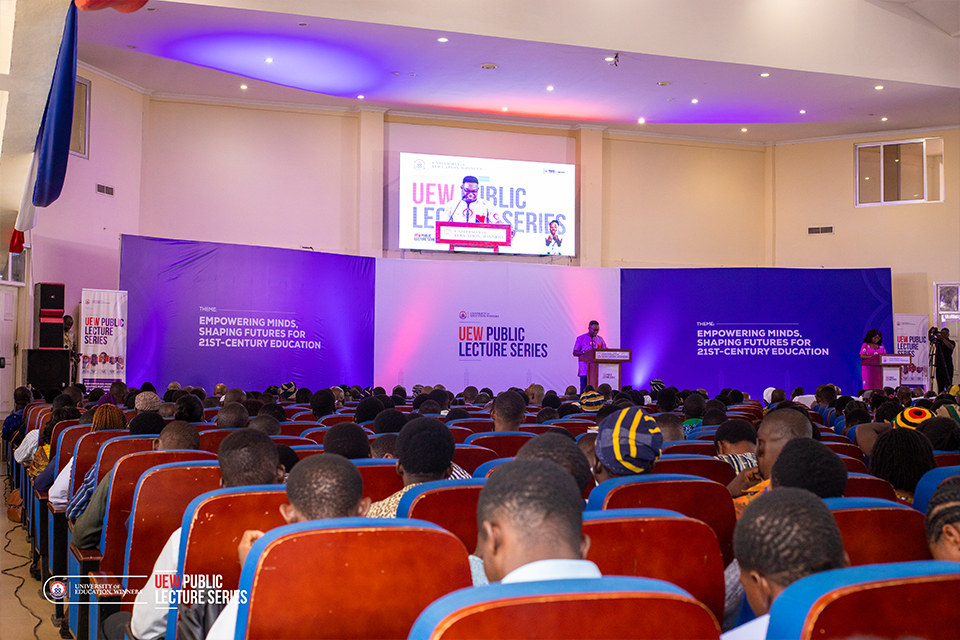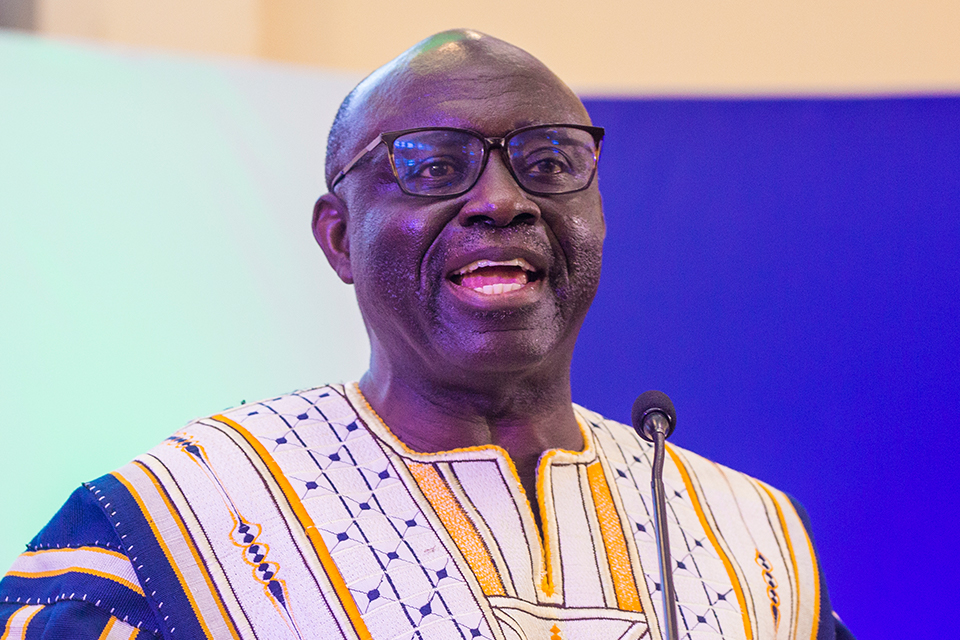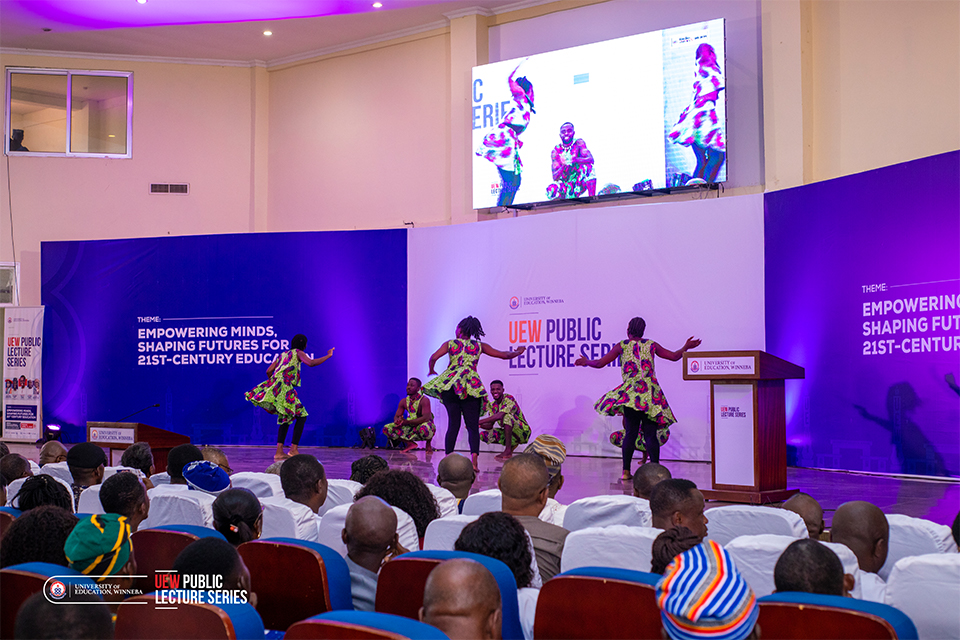UEW Hosts Renowned Pan-Africanist Prof. Lumumba, Urges Radical Educational Reforms for Africa’s Renaissance
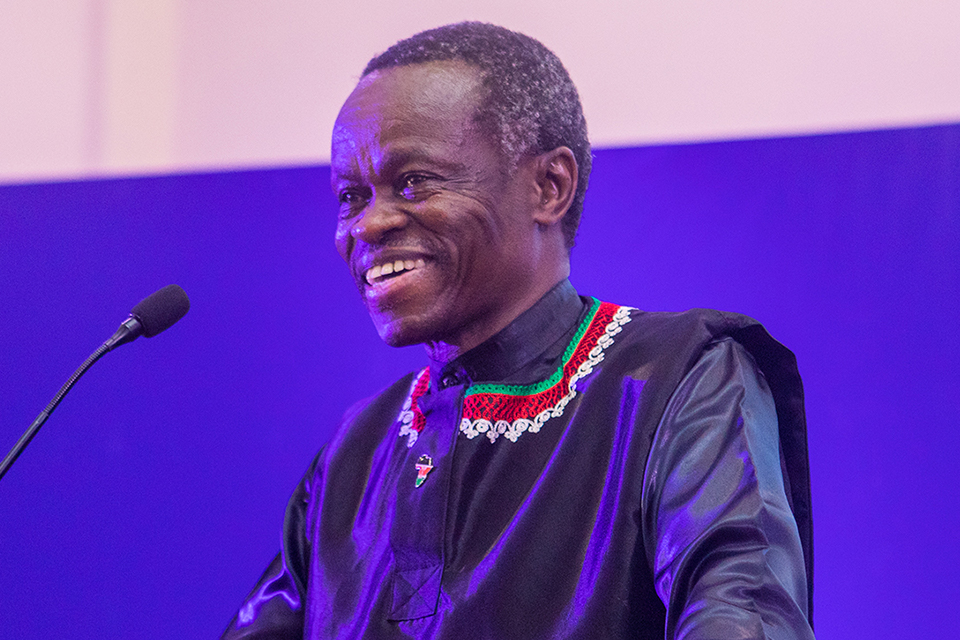
In an address delivered at the University of Education, Winneba’s 2025 Public Lecture Series, celebrated Pan-African scholar Prof. Patrick Loch Otieno Lumumba called on African nations to urgently rethink and decolonise their education systems, asserting that genuine transformation hinges on a return to indigenous knowledge, values and innovation.
The University of Education, Winneba (UEW) reaffirmed its status as Ghana’s hub of intellectual discourse and critical thought leadership as it hosted a renowned Kenyan academic and Pan-Africanist, Prof. P. L. O. Lumumba, for its annual Public Lecture Series for 2025. Speaking under the theme “Empowering Minds, Shaping Futures: The Prospects and Challenges of 21st-Century Education, Lessons for Ghana,” Prof. Lumumba delivered an impassioned speech that challenged Africans to reclaim their identity through transformative education.
Opening his lecture with rich historical reflections, Prof. Lumumba dismantled colonial narratives that portrayed Africa as intellectually barren before colonisation. He highlighted pre-colonial African civilisations—like Timbuktu and Benin—as evidence of the continent’s ancient scholarly and technological prowess. “Africa had a golden age. We must never romanticise the past, but we must reclaim it to shape our future,” he asserted.
Drawing from the works of African intellectuals such as Cheikh Anta Diop, James Emman Kwegyir Aggrey, Kwame Nkrumah, and Chinua Achebe, Prof. Lumumba critiqued the post-colonial education systems still modelled on Western paradigms. “Our education was designed to support the colonial empire. Today, we produce engineers who do not build our roads and doctors who refer us to Europe when we are sick,” he said.
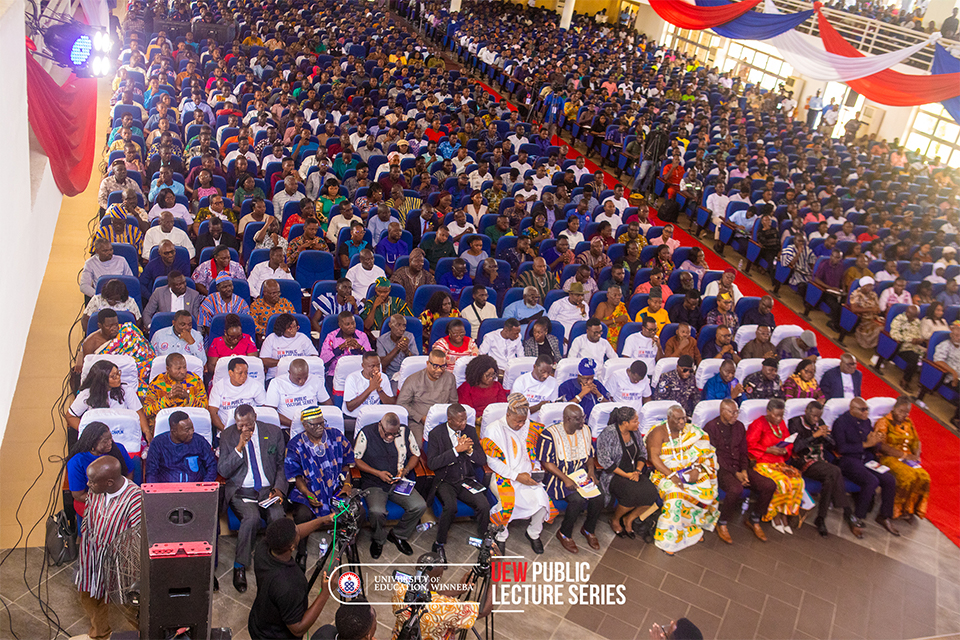
The lecture resonated strongly with UEW’s vision of promoting critical thinking, research, and inclusive dialogue on national development. Prof. Lumumba emphasised that true educational reform begins with mental liberation—decolonising the African mind. He lamented that Africans still equate intelligence with fluency in colonial languages while disregarding native wisdom and languages.
“Our minds have been conditioned to believe that only John can go to heaven, not Kofi; we were told our languages, our systems, and our ways of knowing were inferior. It is time we change that,” he said.
He criticised the continent’s continued reliance on imported goods and services despite producing abundant raw materials. “Africa consumes what it does not produce and produces what it does not consume,” he declared. Citing examples from agriculture, sports, and medicine, he called on universities like UEW to lead in producing relevant knowledge that addresses Africa’s real challenges.
Prof. Lumumba also addressed the mental scars of colonialism, referencing Osagyefo Dr. Kwame Nkrumah’s caution on neo-colonialism as “the last and most dangerous stage of imperialism.” He echoed Ngũgĩ wa Thiong’o’s call for decolonising the mind, warning that Africa’s future depends on rewriting curricula and restoring cultural self-esteem.
He traced the philosophical foundation of African education reform to the historic speeches delivered by African leaders during the formation of the Organisation of African Unity in 1963. Echoing the words of Haile Selassie, Julius Nyerere, and Osagyefo Kwame Nkrumah, he emphasised that education must remain the central driver for Africa’s emancipation.
Prof. Lumumba hailed the efforts of Ghana’s first President, Osagyefo Dr. Kwame Nkrumah, for institutionalising education through the founding of the University of Ghana, Kwame Nkrumah University of Science and Technology, and the institute that birthed UEW. Prof. Lumumba challenged the audience, particularly young scholars and educators to draw inspiration from this legacy and redefine Africa’s curriculum based on indigenous knowledge, innovation and self-confidence.
“Why must UEW be ‘as good as Oxford’ to be seen as excellent? Why not just be great in its own right?” he questioned. He decried the continent’s lingering inferiority complex, calling for a cultural shift that values African languages, systems, and identities. “Language is a billion-dollar industry,” he asserted, lamenting the irony that Twi and Yoruba are now taught in foreign universities while African institutions continue to sideline them.
Prof. Lumumba critiqued Africa’s continued reliance on colonial legal, educational, and administrative systems, describing it as a form of mental imprisonment. He urged UEW and other African universities to challenge outdated paradigms and develop contextually relevant models that reflect Africa’s realities and aspirations.
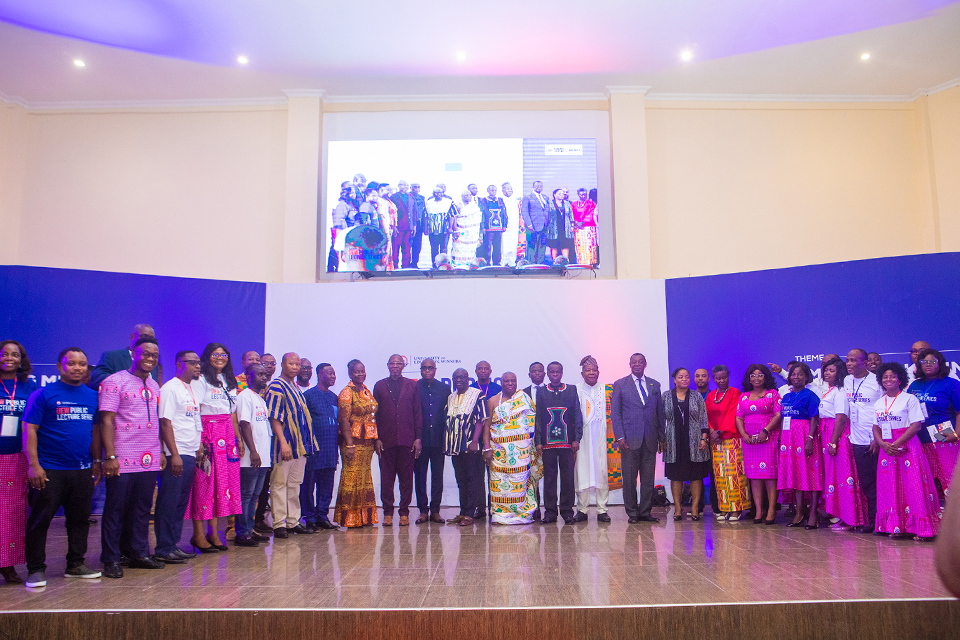
Drawing comparisons with countries like China, which transformed their global standing through strategic educational reforms, he said, “What they did was to change their minds to change their future.” He called on the academic community to admit past shortcomings and embrace the responsibility of shaping a new generation of Africans equipped not just with certificates but with imagination, innovation, and purpose.
Looking to the future, Prof. Lumumba envisioned an Africa where students from across the continent study at UEW; where Ghanaian doctors return home to thriving local institutions; and where indigenous languages like Twi, Ga, and Ewe are globally celebrated. “That Africa is possible, but only if we change our minds,” he declared.
In a rousing conclusion, he challenged students and faculty alike: “Are you the new African citizens Osagyefo Dr. Kwame Nkrumah dreamed of? Do you have the imagination, passion, and spirit of innovation to amaze Africa?”
With a standing ovation, the audience at UEW responded in the affirmative marking the speech not just as a historical moment but as a clarion call for the university to rise boldly in its mission to educate for liberation and transformation.
The 2025 UEW Public Lecture Series showcased the university’s dedication to academic excellence and African-centred scholarship and reignited national conversations on how education can be restructured to empower minds and shape Ghana’s future. As Prof. Lumumba put it, “We are here to reimagine Africa—and education is our passport.”









